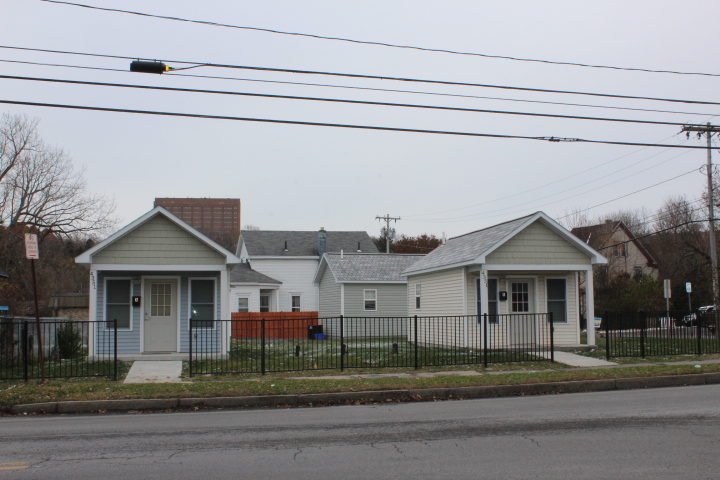Living Conditions in the 315: A College Perspective
In Syracuse and beyond, it is extremely difficult for individuals to get out of homelessness. One’s inability to make the right choices in life is often the main assumption as to why people become homeless. Despite this theory, leaving an abusive family, having a substance dependence or just overall expenses are just some of the many real reasons that can contribute to homelessness.
As a way to assess the awareness of the living conditions in the Syracuse area, A Tiny Home for Good conducted a survey with students from Syracuse University. With a total of 22,484 students, including those in the graduate and law programs, polling the students’ understanding of homelessness and food insecurity helped determine the need for awareness of the surrounding city.
Below are the six questions participants in the survey were asked.
Do you think homelessness and food insecurity is an issue in college campuses?
Based on a 2018 study, researchers from Temple University and the University of Wisconsin HOPE Lab, have found "_____ of students have difficulty in paying for housing/utilities".
Based on the same study conducted by Temple University and the University of Wisconsin HOPE Lab, research shows "_____ of students have struggled to get adequate food".
What do you think the average cost of a 1-bedroom apartment is in Syracuse?
Do you think homelessness and food insecurity is an issue in the city of Syracuse?
What do you think can be done to combat homelessness and food insecurity on college campuses and in the city of Syracuse?
In response to Question 1, students were asked to select, on a scale of 1-5, the degree of homelessness and food insecurity as an issue on college campuses. The results concluded that 46.9% of the Syracuse students selected “3” for homeless and food insecurity as a moderate issue on college campuses.
According to the Temple University and the University of Wisconsin HOPE Lab study, 46% of students have difficulty in paying for housing/utilities. Results from Question 2 show that 41.9% of Syracuse students chose the correct answer of 46%.
The results of question three concluded that only 18.8% of Syracuse students selected the correct answer of 42% when asked what percentage of students have struggled to get adequate food. Conversely, 53.1% of the participants in the survey believed that the percentage was higher at 52%.
According to RENTCafé, the average cost to rent a 1-bedroom apartment in Syracuse is $857.00. Our survey found that 48.4% of participants thought that the cost would be $1,120, while 38.7% selected the correct answer of $857.
In response to Question 5, 96.7% of participants answered “yes” when asked if homelessness and food insecurity were issues in the city of Syracuse. Another common response distinguished the issue as one in the city of Syracuse, but not necessarily on campus at SU.
For the final question, the participants answered using their own insights and opinions of how homelessness and food insecurity on college campuses can be improved. Provided below are examples of the participants’ solutions:
Raise awareness on campus, fundraisers, partner campus organizations with volunteer efforts, bring in speakers, show documentaries
More civic engagement opportunities for students to help out. Transportation included. Extra credit opportunities!
Tiny homes, more service from SU
Decrease cost of living, hire more homeless people, lead homeless people to the shelters that the city of Syracuse provides, find more volunteers at the mission, encourage more food drives
Overall, the purpose of this survey was to evaluate Syracuse University students’ awareness of the issues of homelessness and food insecurity on college campuses and in the Syracuse area. Our main conclusion was that students are mindful of the need for action to combat these issues on college campuses and in the community, but further education is needed in order to raise awareness and create change.
A Tiny Home for Good is proud to be part of that change as we work to continue providing safe, affordable and dignified housing to veterans facing homelessness in the Syracuse area.
Survey Questions Created by Sydney Bruno
Blog Post by Kathryn Elliott





